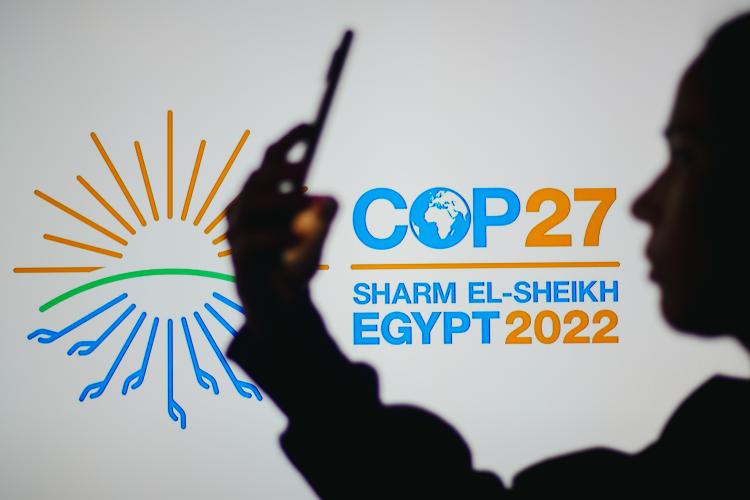You are here
- Home
- One year on from COP26: greater urgency, greater expectation
One year on from COP26: greater urgency, greater expectation

One year has passed since Glasgow hosted the 26th United Nations Climate Change Conference – or COP26 for short. The climate jargon of huddles and NDCs (Nationally Determined Contributions) may have long left Scotland, but the global climate negotiations rumble on.
The baton passes to Egypt for COP27 this month. Now is a good time to take stock of what’s happened since COP26, and look forward to what we might expect at COP27.
Since COP26 we have seen continued progress on loss and damage; the ongoing dialogue over high-polluting nations’ financial responsibility to compensate least well-off nations for climate change impacts.
These talks will grind on at COP27, but in the absence of formal binding agreements a few nations are starting to break ranks – with Scotland leading the way. Scotland committed £1 million to address loss and damage ahead of COP26. The Scottish Government then hosted an international loss and damage conference in Edinburgh in October 2022. Denmark followed by becoming the first UN member state to formally pledge loss and damage funding to less-wealthy nations.
Countries are continuing to enhance their pledges for reducing emissions and adapting to climate change. It was agreed in Glasgow that all nations would revisit and strengthen their targets for reducing emissions by the end of 2022. This continual ratcheting-up of climate change targets is a built-in feature of the climate talks, designed to ensure that national commitments become ever-more ambitious over time as technologies develop. By COP27, we should have a much clearer picture of who is planning to do what to reduce emissions.
However, perhaps the biggest developments since COP26 have come away from the negotiating table. 2022 started with the Russian invasion of Ukraine, which illustrated how a continued reliance on fossil fuels leaves us and our energy bills at the mercy of authoritarian regimes.
The nature of the energy markets and networks means that despite producing a lot of power from renewable sources, Scotland – and especially our rural communities relying on electricity for heat – faces big bills this winter.
A summer of extreme heat in the Northern Hemisphere saw the suburban fringes of London go up in flames, and Scotland’s railways met speed restrictions due to heat stress on tracks. Heavier than usual monsoon rains, melting glaciers and a legacy of poor urban planning left a third of Pakistan under water and over two million people displaced. Climate protestors have resorted to ever more frequent and dramatic actions as exasperation and distress at a lack of action from governments grows.
COP27 therefore happens against a backdrop of greater societal awareness of the urgency of the climate crisis than there was twelve months ago.
What’s more, the unequal nature of climate impacts is feeding a growing sense that our responses don’t just need to be fast and ambitious, they also need to be fair. Just as it is unfair to expose those in Pakistan to heightened flood risk due to our reluctance to reduce emissions in the UK, so it is unfair to expect those in the Highlands of Scotland to accept large-scale tree planting without consultation as a means of offsetting the emissions of those elsewhere.
Soaring energy bills are leading to an ever-broadening consensus that insulating our homes, renewing our heating networks, and accelerating the shift to renewable energy sources makes good economic sense and has the potential to create fair, decent and stable work for many.
So, my message to world leaders prepping their delegates and negotiators for COP27 would be: Be bold, be ambitious, and be fair.
This article has been written by Leslie Mabon, Lecturer in Environmental Systems, as a response to a call for articles from our OU colleagues, that relate to climate change from their own disciplinary or lived experience.
There is a ‘Sustainability Hub’ full of free articles, interactives, and courses about climate change, on The Open University’s free learning site, OpenLearn: www.open.edu/openlearn.
This article is an opinion piece that was been written by Dr Leslie Mabon is a Lecturer in Environmental Systems in the School of Engineering and Innovation at The Open University. He is a social scientist by training, with a particular interest in what living in a changing environment means for coastal societies. Leslie is a member of the Young Academy of Scotland, and a Future Earth Coasts Fellow.
Related articles
- Introducing a new free course - Climate Psychology: facing the climate crisis 8th February 2024
- Climate Change and machine learning - Climate Perspectives 8th February 2024
- Go Green: What is eco-anxiety? 8th February 2024
- Go Green: Fashion Fixing and Mending 8th February 2024
- OU rises in People and Planet League 13th December 2023